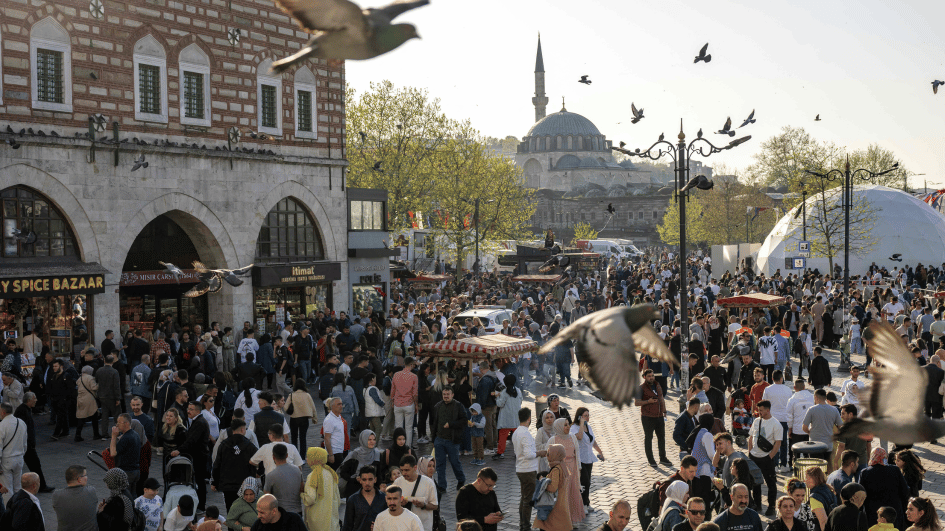The condition of women in Turkey is no laughing matter
Our deputy prime minister, Bülent Arınç, recently let slip his opinion that “women should not laugh in front of everybody.” Why does he think so? Beats me. I think it’s a weird thing to say. It indicates an anachronism embedded in Turkey’s ruling elite. What’s more though, is that there is a strange connection between laughter and authoritarianism.
Remember Umberto Eco’s first novel, “The Name of the Rose?” It is a historical mystery set in an Italian monastery in the year 1327. There is a large library inside the monastery run by priests, one of whom commits a series of murders while trying to hide Artistotle’s book on comedy. The guy just does not want others to read a book that talks positively about laughter. The murderer, disguised in the cloth of the guardians of ancient wisdom, thinks that laughing is rebellion against God. So medieval. Autocrats don’t tolerate laughter.
But that was 1327 for God’s sake, the 14th century. We are not even in the 19th to find excuse for such remarks. Making similar remarks in the 21st century should be embarrassingly anachronistic by anyone’s standards. The affair rightly set off a campaign in social media where people are sharing photos of laughing women. However, having just read the new Human Development Report (HDR) of the United Nations Development Program (UNDP), I do have to stress that the condition of women in Turkey is no laughing matter.
The HDR this year is on those vulnerable and vulnerability. Women definitely have found a place for themselves in the report. I find the Gender Development Index (GDI) rather interesting. The Human Development Index (HDI) is a composite index measuring achievements in three areas – a long and healthy life, knowledge and a decent standard of living. The report ranks each country according to their level in the index. GDI, on the other hand, is just the ratio of female HDI to the male HDI in each country. In this way, GDI shows the disparity between females and males in terms of health, education and living standards in different countries. While there is a ranking of countries according to the HDI parameter, GDI, or the ratio of female-to-male HDI, alters this ranking. Some countries get better while the others get worse when you go from the HDI to GDI rankings.
Turkey is 69th in terms of HDI, but when it comes to the disparity between genders, Turkey drops 49 ranks to 118th. Norway is number 1 in terms of HDI, but goes down to five in terms of GDI. Venezuela beats Turkey at 67th in HDI. It goes up to number two when it comes to gender disparity. Their HDI level is low, but at least Venezuelan women and men live in the same country. In Turkey’s case, women live in Tonga (100th in HDI), while men are in Uruguay (50th in HDI). Whoever said that men are from Mars and women from Venus was on to something, at least in Turkey’s case.
Metrics are important. They help shape our understanding of the human condition. The gender development index shows a huge disparity in those conditions in Turkish society. The condition of women in Turkey is disgraceful and certainly no laughing matter.
It is indeed the deputy prime minister, Mr. Arınç, who shall not laugh when it comes to talking about women in Turkey. He should do what he usually does. Start weeping in front of cameras.











